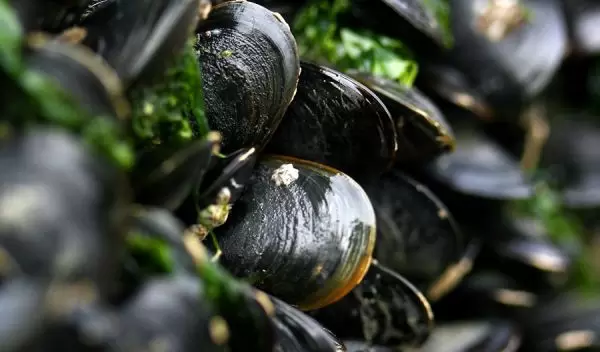
'Wrong-way' migrations stop shellfish from escaping ocean warming
Ocean warming is paradoxically driving bottom-dwelling invertebrates that are valuable to the shellfish industry –- including sea scallops, blue mussels, surf clams and quahogs –- into warmer waters and threatening their survival.
In a new U.S. National Science Foundation-funded study published in Nature Climate Change, researchers identify a cause for the "wrong-way" species migrations: warming-induced changes to their spawning times, resulting in the earlier release of larvae, which ocean currents push into warmer waters.
The researchers, at Rutgers University and other institutions, studied six decades of data on 50 species of bottom-dwelling invertebrates and found that about 80% have disappeared from Georges Bank off Massachusetts and the outer shelf between the Delmarva Peninsula and Cape Cod.
"The deeper, colder waters of the outer shelf should provide a refuge from warming, so it is puzzling that species distributions are contracting into shallower water," said Heidi Fuchs of Rutgers, the study's lead author.
Many species of fish respond to a warming ocean by migrating to cooler waters. But the "wrong-way" migrators -- which include shellfish, snails, starfish, worms and others -- share a few crucial traits. As larvae, they are weak swimmers and rely on ocean currents for transportation. As adults, they tend to remain in place.
A warming ocean would have caused these species to spawn earlier in spring or summer, exposing their larvae to winds and water currents they wouldn't experience during the normal spawning season.
As a result, the larvae would be pushed toward the southwest and inland, where waters are warmer and larvae are less likely to survive. Those who survive to adulthood stay in these areas, and are trapped in a feedback loop in which warmer waters lead to even earlier spawning times and a further shrinking of their occupied areas.
"Studies like this that combine ocean physics and biology can help us understand how populations of marine organisms are responding to climate change," says Cynthia Suchman, a program director in NSF's Division of Ocean Sciences.


